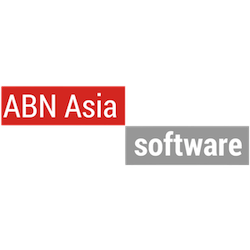What is Effective Education? Learn to use the tools, or learn to solve problems?

Integrating Artificial Intelligence into Education is a must now. Lets see why.
What are two types of learning? 1. Learn to use the tools (hoping one day you will use those tools). 2. Learn to solve problems (and during this process, learn to use whatever tools to get the job done).
The later direction is obviously more effective. Not because 1 is bad, but because 2 fits better to the way the human mind works: It asks any question that comes to mind, and hence it can develop the logic.
So, who else has the unlimited knowledge and especially the patience.
Integrating artificial intelligence (AI) into education is a transformative endeavor that aligns with the dynamic nature of the human mind and the evolving landscape of knowledge. Several compelling reasons support the notion that AI should be an integral part of education:
1. Adaptability to Individual Learning Styles:
AI systems can analyze the unique learning patterns and preferences of individual students. By leveraging machine learning algorithms, educational platforms can tailor content delivery, pace, and difficulty levels to suit each student’s needs. This adaptability ensures that education is not a one-size-fits-all approach, enhancing the overall effectiveness of the learning process.
2. Personalized Learning Paths:
AI algorithms can create personalized learning paths for students, focusing on their strengths and addressing their weaknesses. This personalized approach helps optimize the time spent on learning, leading to a more efficient acquisition of knowledge. Students can explore topics at their own pace, fostering a deeper understanding of subjects.
3. Continuous Assessment and Feedback:
AI can provide real-time assessment and feedback to students. Through automated grading systems and AI-driven evaluation tools, students receive immediate insights into their performance. This rapid feedback loop enables them to identify areas that require improvement and encourages a growth mindset.
4. Unlimited Patience and Availability:
Unlike human educators who may face time constraints and varying levels of patience, AI systems have the ability to provide consistent, patient, and persistent support to learners. They are available 24/7, allowing students to revisit lessons, seek clarification, and reinforce their understanding whenever needed.
5. Data-Driven Decision-Making:
AI in education generates valuable data on student performance, engagement, and learning preferences. Educators can use this data to make informed decisions about teaching methodologies, curriculum design, and resource allocation. Data-driven insights help refine educational strategies for better outcomes.
6. Global Accessibility:
AI-powered educational platforms have the potential to make quality education accessible globally. Through online courses, interactive modules, and virtual classrooms, AI eliminates geographical barriers, offering learning opportunities to individuals regardless of their location.
7. Enhanced Resource Efficiency:
AI can automate administrative tasks, allowing educators to focus more on teaching and mentoring. Chatbots, for instance, can handle routine queries, freeing up human educators to engage in more meaningful interactions with students.
8. Curriculum Customization and Updating:
AI enables the dynamic adaptation of curricula based on emerging trends and changes in knowledge landscapes. This ensures that educational content remains relevant and reflects the latest developments in various fields.
Integrating AI into education aligns with the diverse and exploratory nature of the human mind. In the end, education should be personal, and humane. Hence, this trend is a must in education, and it will happen, whether you like it or not. We must change. At ABN Asia, we already have.
AbnAsia.org Software. Faster. Better. More Reliable. +84945924877 (Asia# Mobile, WhatsApp, Telegram, Viber, Zalo); +16699996606 (US# Mobile, WhatsApp, Telegram) [email protected]




